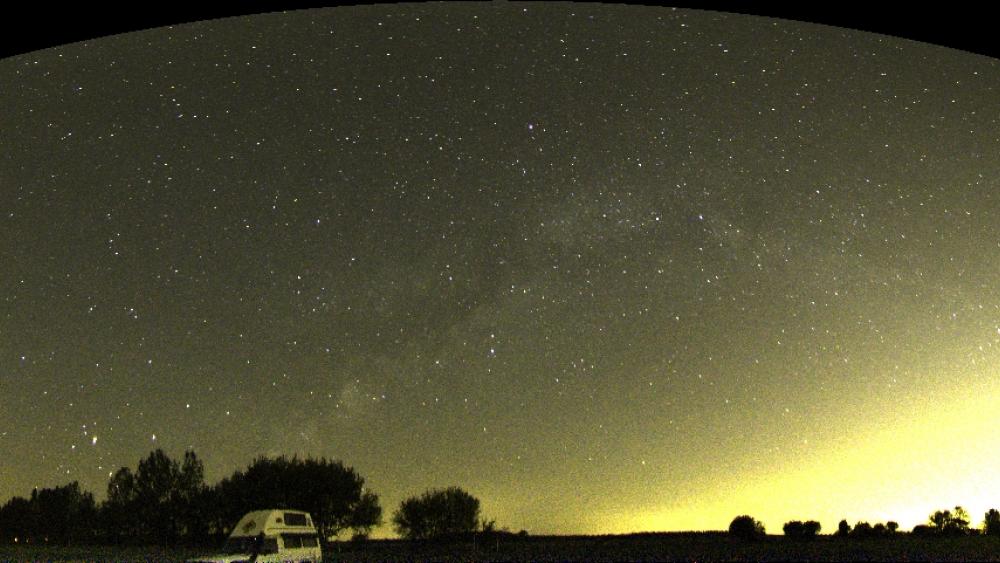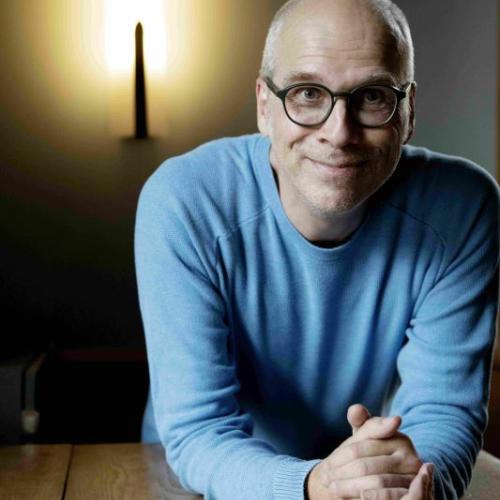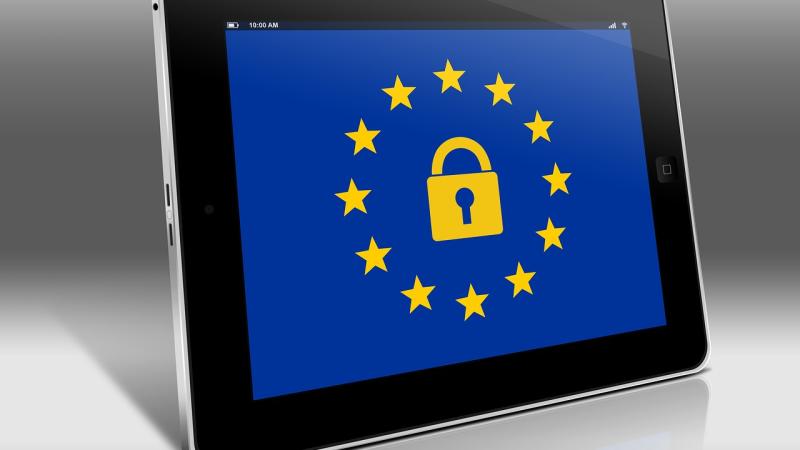
Light domes like the one here over Berlin appear when too much artificial light is emitted into the night sky. They can often be seen from a long distance. | Photo: Andreas Jechow, IGB
That is what IGB scientists Andreas Jechow and Franz Hölker wanted to investigate. For their study, they analysed the skyglow in the Berlin region. Skyglow occurs when too much artificial light is emitted into the night sky and scattered back to earth through the atmosphere. Then light domes appear which can be seen from many kilometers away – mostly over cities and industrial plants. These limit astronomical observations and have a negative effect on the day-night rhythm of animals and humans, for example.
Andreas Jechow and Franz Hölker compared data on sky brightness and correlated colour temperature from March 2017 with those from March 2020, in each case on a moonless, clear night. Under normal conditions - without Corona - the night sky over the city would have had to become brighter, because like almost everywhere else in the world, artificial lighting is increasing here. But the opposite was the case: the skyglow over Berlin decreased by 20 percent in the city center and even by more than 50 percent at a distance of about 60 kilometers. Despite increased light emissions, less light was scattered in the atmosphere. The researchers suspect the cause to be improved air quality due to less air and road traffic. Their thesis is supported by statistical data and satellite image analyses. Other possible causes are changes in private lighting and reduced horizontal light due to less car traffic.
The scientists conclude that air pollution plays a greater role than previously thought. It is an important aspect when it comes to investigating and reducing light pollution.






